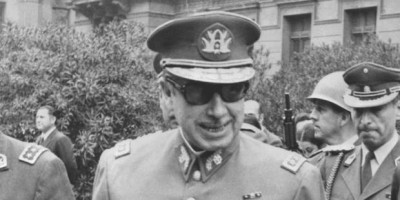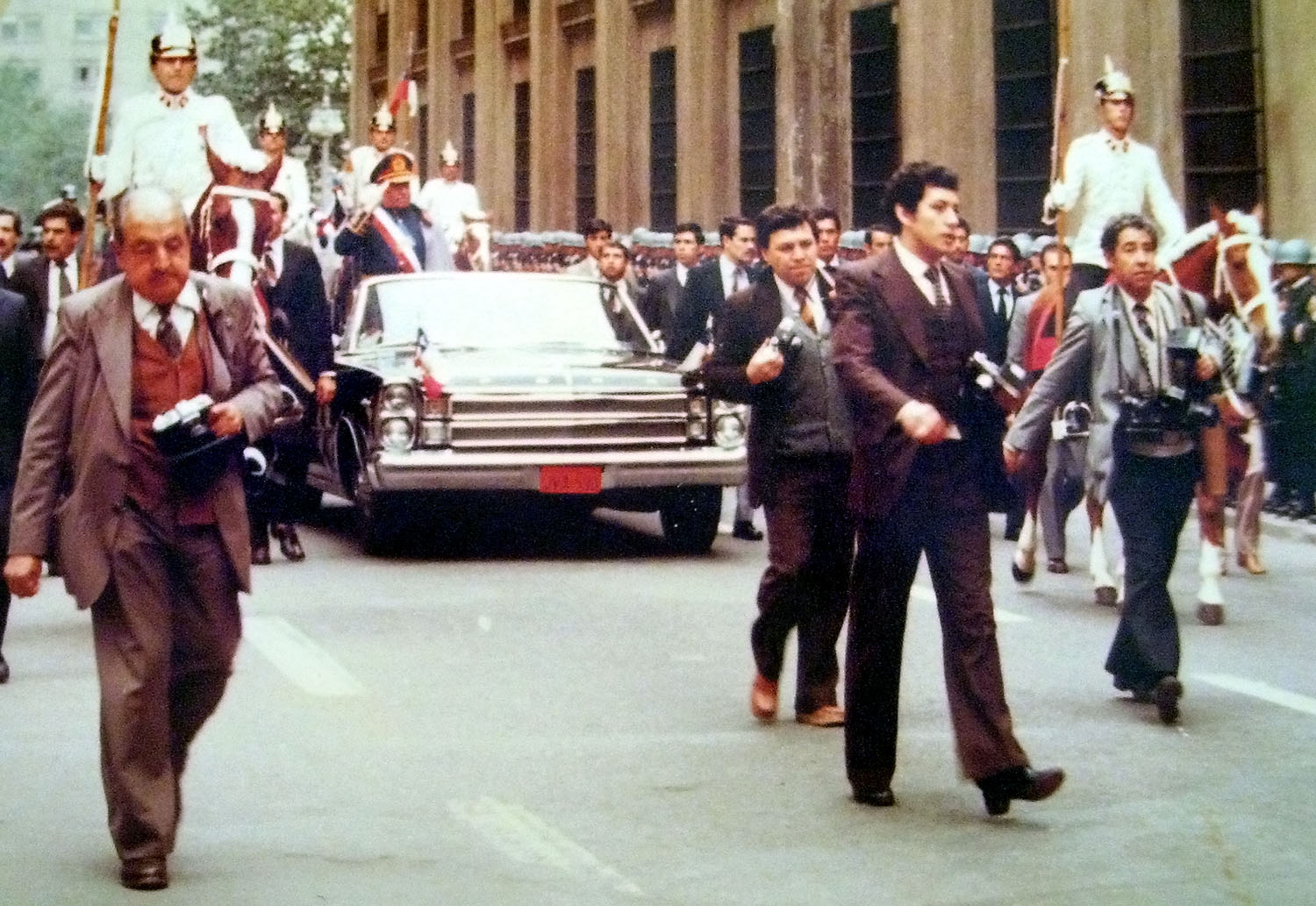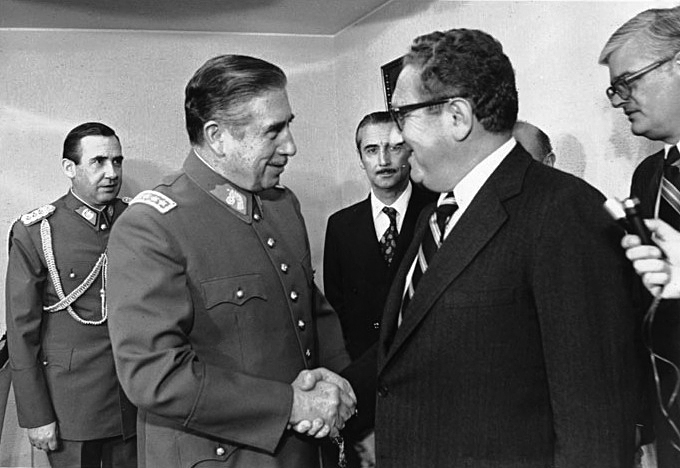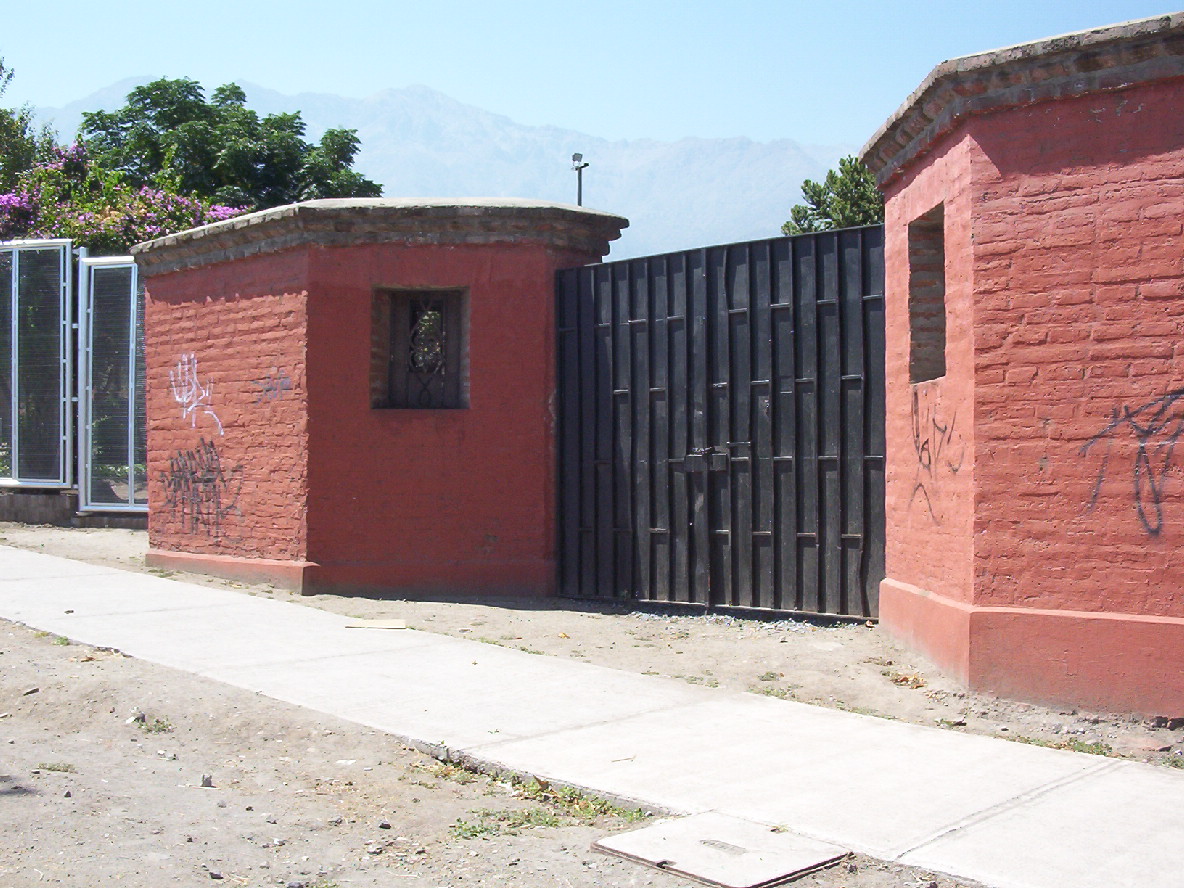Power versus the Press: The Extradition Cases of Pinochet & Assange

With Julian Assange facing possible extradition from Britain to the U.S. for publishing classified secrets, Elizabeth Vos reflects on the parallel but divergent case of a notorious Chilean dictator.
***
Eight months from now one of the most consequential extradition hearings in recent history will take place in Great Britain when a British court and the home secretary will determine whether WikiLeaks publisher Julian Assange will be extradited to the United States to face espionage charges for the crime of journalism.
Twenty-one years ago, in another historic extradition case, Britain had to decide whether to send former Chilean dictator Augusto Pinochet to Spain for the crime of mass murder.

Pinochet in 1982 motorcade. (Ben2, CC BY-SA 3.0, via Wikimedia Commons)
In October 1998, Pinochet, whose regime became a byword for political killings, “disappearances” and torture, was arrested in London while there for medical treatment.
A judge in Madrid, Baltasar Garzón, sought his extradition in connection with the deaths of Spanish citizens in Chile.
Citing the aging Pinochet’s inability to stand trial, the United Kingdom in 2000 ultimately prevented him from being extradited to Spain where he would have faced prosecution for human rights abuses.
At an early point in the proceedings, Pinochet’s lawyer, Clare Montgomery, made an argument in his defense that had nothing to do with age or poor health.
“States and the organs of state, including heads of state and former heads of state, are entitled to absolute immunity from criminal proceedings in the national courts of other countries,” the Guardian quoted Montgomery as saying. She argued that crimes against humanity should be narrowly defined within the context of international warfare, as the BBC reported.
Montgomery’s immunity argument was overturned by the House of Lords. But the extradition court ruled that the poor health of Pinochet, a friend of former Prime Minister Margaret Thatcher, would prevent him from being sent to Spain.
Same Participants
Though the cases of Pinochet and Assange are separated by more than two decades, two of the participants are the same, this time playing very different roles.
Montgomery reappeared in the Assange case to argue on behalf of a Swedish prosecutor’s right to seek a European arrest warrant for Assange.
Her argument ultimately failed. A Swedish court recently denied the European arrest warrant. But as in the Pinochet case, Montgomery helped buy time, this time allowing Swedish sexual allegations to persist and muddy Assange’s reputation.
Garzón, the Spanish judge, who had requested Pinochet’s extradition, also reappears in Assange’s case. He is a well-known defender of human rights, “viewed by many as Spain’s most courageous legal watchdog and the scourge of bent politicians and drug warlords the world over,” as the The Independent described him a few years ago.
He now leads Assange’s legal team.
Friends and Enemies
The question that stands out is whether the British legal system will let a notorious dictator like Pinochet go but send a publisher such as Assange to the United States to face life in prison.
The tide of political sentiment has been running against Assange.
Before the U.K. home secretary signed the U.S. extradition request for Assange, leading to the magistrate’s court setting up a five-day hearing at the end of February 2020, British lawmakers publicly urged that the case against Assange proceed. Few elected officials have defended Assange (his image tainted by the unproven Swedish allegations and criticism about the 2016 U.S. election that have nothing to do with the extradition request).
Pinochet, by contrast, had friends in high places. Thatcher openly called for his release.
“[Pinochet] reportedly made a habit of sending chocolates and flowers to [Thatcher] during his twice-yearly visits to London and took tea with her whenever possible. Just two weeks before his arrest, General Pinochet was entertained by the Thatchers at their Chester Square address in London,” the BBC reported. CNN reported on the “famously close relationship.”
Similar affection was also documented between Pinochet and former U.S. Secretary of State Henry Kissinger. The Nation reported on a declassified memo of a private conversation in Santiago, Chile, in June 1976, that revealed “Kissinger’s expressions of ‘friendship,’ ‘sympathetic’ understanding and wishes for success to Pinochet at the height of his repression, when many of those crimes – torture, disappearances, international terrorism – were being committed.”

Pinochet, left, greeting Kissinger in 1976. (Ministerio de Relaciones Exteriores de Chile, CC BY 2.0, via Wikimedia Commons)
Systematic, Widespread Abuse
Pinochet rose to power following a U.S.-backed, violent coup by the Chilean army on Sept. 11, 1973, which ousted the country’s democratically-elected president, the socialist Salvador Allende. The coup has been called “one of the most brutal in modern Latin American history.”
The CIA funded operations in Chile with millions of U.S. tax dollars both before and after Allende’s election, the 1975 U.S. Senate Church Committee reported.
Although the Church Committee report found no evidence of the agency directly funding the coup, the National Security Archive noted that the CIA “actively supported the military Junta after the overthrow of President Allende. Many of Pinochet’s officers were involved in systematic and widespread human rights abuses. Some of these were contacts or agents of the CIA or US military.”
The violence Pinochet inflicted spilled over the borders of Chile. His orders for murder have been linked to the killing of an exiled Chilean dissident, Orlando Letelier, in a car bomb blast on U.S. soil. The attack also killed Ronni Moffitt, a U.S. citizen.

Villa Grimaldi, one of the largest torture centers during the Pinochet military dictatorship. (CC BY 2.5 via Wikimedia Commons)
More than 40,000 people, many only tangentially tied to dissidents, were “disappeared,” tortured or killed during Pinochet’s 17-year reign of terror.
Pinochet’s Chile almost immediately after the coup became the laboratory for the Chicago School’s economic theory of neoliberalism, or a new laissez-faire, enforced at the point of a gun. Thatcher and President Ronald Reagan championed a system of privatization, free trade, cuts to social services and deregulation of banking and business that has led to the greatest inequality in a century.
By contrast to these crimes and corruption, Assange has published thousands of classified documents showing U.S. and other nations’ officials engaged in the very acts of crime and corruption.
Yet it is far from certain that Assange will receive the leniency from the British extradition process that Pinochet enjoyed.
After the dictator’s death, Christopher Hitchens wrote that the U.S. Department of Justice had an indictment for Pinochet completed for some time. “But the indictment has never been unsealed,” Hitchens reported in Slate.
Assange’s indictment, by contrast, was not only unsealed, more charges were heaped on.
Given the longstanding difficulties he has had accessing justice, it’s fair to say that the U.K. and the rest of the Western world are committing a slow-motion “enforced disappearance” of Assange.
*
Note to readers: please click the share buttons above or below. Forward this article to your email lists. Crosspost on your blog site, internet forums. etc.
This is an updated version of an article that originally appeared on Disobedient Media.
Elizabeth Vos is a freelance reporter and regular contributor to Consortium News.

